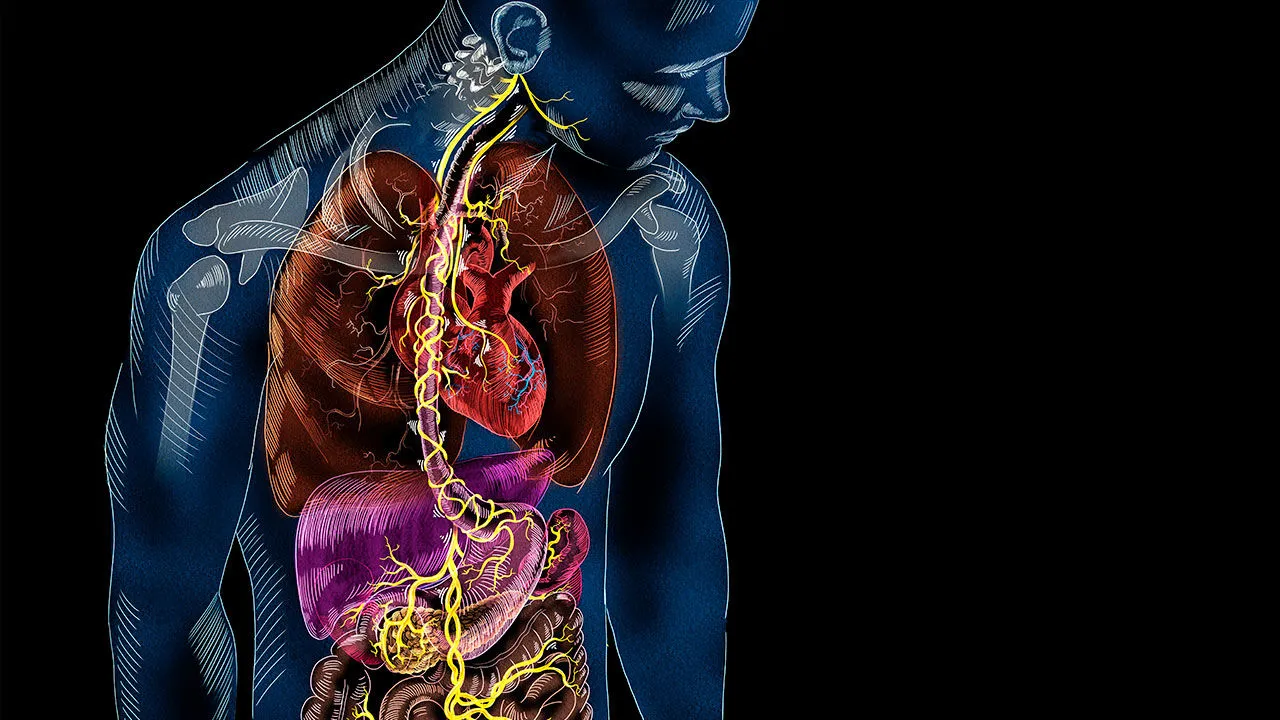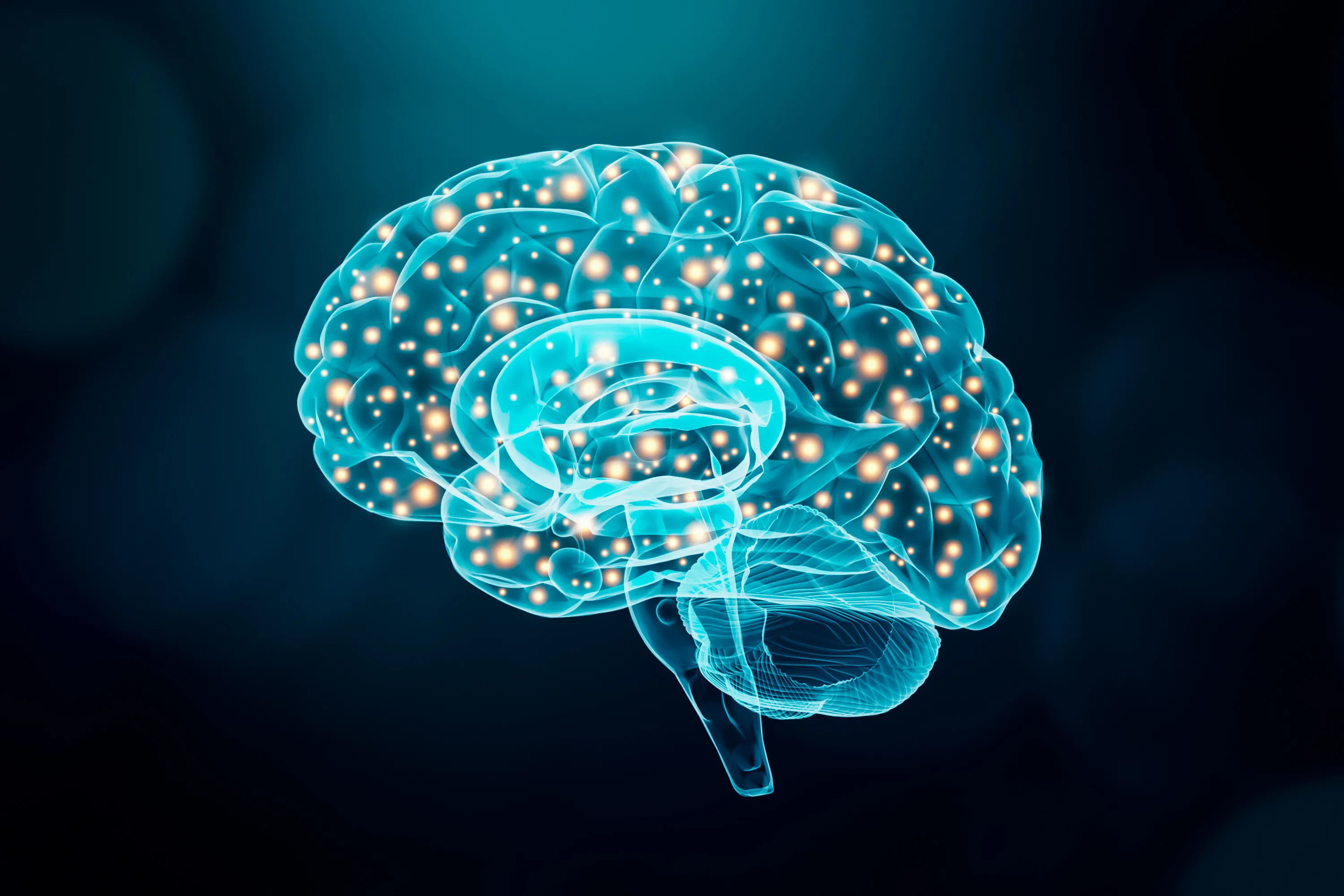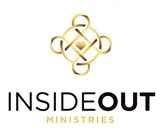The Neuro-based Enneagram
How do we discern God’s will for our lives?
And how does the Neuro-based Enneagram help with that?
When I was first introduced to the Enneagram, it was like someone turned on the light in a dark room. I could see things about myself that I'd never seen before! I finally understood why I kept sabotaging my good intentions with words and actions that caused problems, even when I "knew better."
I had been confused because, like Paul wrote in Romans:
I do not understand my own actions. For I do not do what I want, but I do the very thing I hate... For the desire to do the good lies close at hand, but not the ability. For I do not do the good I want, but the evil I do not want is what I do...
-- Romans 7:15, 18b-20a (NRSV)
The Enneagram explains that we all have hidden, unconscious motivations that cause us to repeat patterns of thought and behavior that once served us for some reason.
The problem is, those same patterns don't always serve equally well in all circumstances. Sometimes that particular behavior - such as the inclination to scan for danger, or fight for the underdog, or insist on helping someone - isn't the best thing to do at that moment. Yet the more often you repeat those thoughts and behaviors, the more "well-worn" the neural pathways become in your brain. That's truly the meaning of a "self-fulfilling prophecy".
So using the Enneagram as a tool for personal and spiritual growth begins with self-awareness (noticing how you think, feel, and act) and then self-knowledge (understanding why you think, feel and act that way).

As you grow in self-knowledge, you learn to recognize your hidden, unconscious motivations and triggers. Some of these motivations are your sweet spots, the thoughts and behaviors that make you you, and that are blessings to you and to others.
Some of these motivations are your blind spots, the unexpected triggers that cause you to behave in ways that you know are not your best self. Once you can anticipate when you are going to be triggered to act in a negative way, you can plan ahead and choose a response that is more Christ-like.
Discernment is less about knowing what to do… and more about knowing who you are... and who you can become, through intentional, Integrated Discipleship.
So the better you know and understand yourself, the more like Jesus you can become. The more spiritually formed like Jesus you become, the more your longings, desires, and loves will be in alignment with God's longings, desires, and loves for you.
When I work with clients, we use the Neuro-based Enneagram as a way to grow in self-knowledge.
"Meeting with Debbie about my Enneagram results was life-giving. Not only is she a compassionate listener, but her skill and research efforts make her highly effective in giving helpful (not pushy) direction toward wholeness and harmony. I came to her in a moment of great distress as I was trying to come to terms with “my number”, and I found her to be so approachable and easy to talk with. I did not feel like a project, and it was clear that she has integrated her work into her own life. This is reassuring to me!"
~Julie S, coachee
What is the Neuro-based Enneagram?
The Enneagram has been around for hundreds of years. Over the last several decades, it’s become a well-known tool for transformation based on understanding your natural temperament and personality tendencies.
Within the Enneagram there are three centers of intelligence
based on head, heart, or gut/body.
These centers of "intelligence" are also based on
three core emotions: anger; sadness/shame; fear.
These emotions surface when ABCs are blocked (agency; bonding; certainty).
Most people - deep down - have one of the three as a "home base" emotion
(though we feel them all, of course).
Within each of these triads, there are three ways of being,
for a total of nine personality tendencies.
The "ways of being" (temperament) are based on
where you place your attention: Inward, outward, or both.
Each tendency has a number and some specific characteristics
associated with that space.
(Details about tendencies of specific numbers are at the bottom of this page.)
I recommend the WEPSS assessment to determine your tendencies. (not an affiliate link)
Click here to meet with me for a discernment call and to discuss your WEPSS score.
-

"If you're looking to understand yourself better and you want some tools and strategies to help you feel like you are a more rounded person and more in control of your thought processes and decision-making, I would recommend that you go through this process with Debbie. I can already really feel a difference. I'm starting to question my own choices and I feel like I'm making better decisions now, moving forward. If you're thinking about it, go for it! It will make a huge difference to your life, your career, and your relationships!"
CLICK HERE TO VIEW ANNA'S VIDEO TESTIMONIAL
~Anna Iveson, coachee

Gut/body types
People who score high in 8, 9, and 1 energy rely on their bodily instinct in their relationships. They tend to view many aspects of life as a struggle for justice and fairness. Anger is the dominant emotion. Gut/body types become angry when they feel their sense of agency is blocked.

Heart types
People who score high in 2, 3, and 4 energy rely on their intuition and emotions in their relationships. Personal connections are their primary focus. Sadness/shame are the dominant emotions. Heart types feel sad when they lose bonding and connection, and shame when they don't feel they are "enough".

Head types
People who score high in 5, 6, and 7 energy rely on their intellectual capabilities in their relationships in order to cope with their fear, which is the dominant emotion. Head types feel fear and anxiety when their certainty and/or safety is threatened.
The Neuro-based Enneagram helps because we all have a big problem: we like to hide.
The writer of Psalm 139 feels that way too. He writes, Surely the darkness will hide me and the light become night around me. He wonders if God will see him even in the darkness.
But then the psalmist acknowledges that nothing is hidden from God; God sees everything: Even the darkness will not be dark to you; the night will shine like the day, for darkness is as light to you.
This is good news! No matter how closely it feels like the shade encroaches upon you, you do not need to be afraid because, as Jesus says, “The light shines in the darkness and the darkness has not overcome it” (John 1:5).
Because God the Creator is light itself, you are never, ever hidden from God’s eyes. God knows you and your story, as well as your hurts and pains.

In Psalm 27 we read, The Lord is my light and my salvation - whom shall I fear? The Lord is the stronghold of my life - of whom shall I be afraid?
God saves you from whatever is frightening because God sees you, knows you, and protects you, even in what feels like darkness. Jesus promised, “I am the light of the world. Whoever follows me will never walk in darkness but have the light of life” (John 8:12). In the hidden cellar of our souls, we know that the scary dark corners don’t define us.
By intentionally increasing in self-knowledge we allow God to liberate us from the power of darkness, the power that instills fear, sadness/shame, and anger in our souls. God has delivered us from the domain of darkness and transferred us to the kingdom of God's beloved Son (Colossians 1).
That kingdom holds the light of the world.
The 9 Neuro-based Enneagram Tendencies
We use the Neuro-based Enneagram to help shed light in our darkness. It is a tool for transformation.
Transformation creates changes in attitude, behavior, character, beliefs, and identity.
Each of us has an inner drive to feel like an integrated, whole person.
So we need to change some things when we don't feel whole and integrated;
which is more often than you'd think.
Most people go through life without even being aware that change is possible.
But not only is transformation possible... It's necessary.
Generally, it’s impossible to meet new challenges without some inner transformation.
And most of the challenges we face involve relationships.
Fortunately, it is through relationships that transformation is especially possible.
That is why loving discipleship groups and spiritual companions are critical.
As you discover more about yourself through the Neuro-based Enneagram,
be aware that Jesus is calling you to become the best version of you that you were created to be.
So pray for the grace and power of the Holy Spirit to lead you on this journey.
Gut/Body-based Tendencies

Powerful person. Outward attention.
Value: Autonomy
Gift: Growth
Energy: Disruption
Words: Independent. Assertive. Confident. Leader. Fearless. Strong-willed. Assured.
Focus and attention: You want to correct (or disrupt) things for a more just world. You also want to have a big impact on the world. You get easily frustrated with loss of agency. You often dismiss others who don't keep up with you. You externalize anger to avoid appearing weak.
Positive core values:Attracted to and appreciate power. Use your influence for good. You are a strong leader. Self-confident, self-assured, healthy self-image. Use your power to contribute to and build up the community. Inspire others to accomplish great things. Direct, straightforward, honest.

Peaceful person. Attention is inward and outward.
Value: Serenity
Gift: Rest
Energy: Peace
Words: Patient. Diplomatic. Low key. Modest. Unflappable. Non-judgmental. Calm. Down-to-earth.
Focus and attention: You give up your own inner drive for asserting agency in the world just to make sure everyone else - outside - gets along. You mediate conflicts. You reframe and redirect your anger. You try to ignore your anger to avoid conflict.
Positive core values:You value peace, tranquil order. Underlying sense and appreciation for harmony. Possess diplomacy. Can reconcile opposities, see both sides. Allow things to unfold when ready. Easy-going; give others freedom to lead. Calm, reassuring presence.

Good person. Inward attention.
Value: Justice
Gift: Agency
Energy: Reformation
Words: Serious. Responsible. Dedicated. Conscientious. Precise. Hardworking. High standards.
Focus and attention: You want the outer world to match your inner map of how things "should" be, so you can have inner agency. But the outer world never meets your inner expectations, so frustrations cause you to internalize anger while trying to avoid it, because "good" people aren't angry.
Positive core values:Value and attracted to goodness. You want to make the world a better place to live in. Appreciation for excellence. Vision for what could be, willingness to work hard for it. Highly develped critical faculty, so you're good at quality control. Exact; correct. Clarity of focus and intention. Precise.
Heart-based Tendencies

Nurturing person. Outward attention.
Value: Appreciation
Gift: Unconditional love
Energy: NurturingLove.
Words: Unselfish. Caring. Generous. Service. Build value in others. Appreciation. Sympathetic.
Focus and attention: You feel bonded when others let you meet their needs. You're externally focused on the inward needs of others. You are unable to deal with your sadness when they don't let you nurture them. You focus on others' feelings and often avoid your personal needs.
Positive core values:
Intuitive sense for what others need, want, and are feeling. Sociable, friendly, approachable. Life is about relationships. You love to help others. Good listener. Help people help themselves.

Effective person. Attention is inward and outward.
Value: Creativity
Gift: Confidence
Energy: Achievement
Words: Successful. Motivator. Goal-oriented. Energetic. Active. Organized. Competent. Multi-faceted.
Focus and attention: You have a conflict of attention: externally, you long to belong, to be bonded... But internally, you are sad that you don't really belong. So you work to gain attention through effective achievement and high performance. You wonder what others think of you, and are sad/ashamed when you feel like you don't measure up. You don't recognize your own feelings very well, and avoid failure.
Positive core values:
Attracted to and value efficiency, productivy, competence. Can get things done. Friendly, gregarious, sociable. Intensely relational. Intuitive sense for what people expect. Adaptable. Can negotiate and compromise to accomplish. Optimistic, enthusiastic. Capacity for hard work. Great enthusiasm for projects, goals, creating and finishing things.

Original person. Inward attention.
Value: Authenticity
Gift: Compassion
Energy: Individuality
Words: Sensitive. Intense. Making beautiful. Feeling. Aesthetic. Intuitive. Distinctive. Refined.
Focus and attention: You want to be bonded, but don't feel connected. You feel like "something's missing." You express your sadness in the arts and creative endeavors, but it's no big deal if it's never finished. You focus on your own feelings. You avoid being ordinary. You feel alone, misunderstood, because "no one else is really like me."
Positive core values:
Value originality and individuality. Can make the ordinary, extraordinary. Value and appreciate beauty. Innate sense for quality, class. Imaginative and creative. Can empathize with others. Attuned to feelings, moods, tone, and spirit of the group. Sensitive to others' feelings. Drama, tragedy, emotional.
Head-based Tendencies

Wise person. Inward attention.
Value: Clarity
Gift: Insight
Energy: Investigation
Words: Reflective. Scholarly. Prudent. Logical. Reasonable. Analyzing. Perceptive. Informed.
Focus and attention: To have certainty about your safety, you're careful about your time, knowledge, and the space around you. You cultivate expertise. You work on projects. You avoid emptiness. You are content to watch others and observe the world. This is how you manage your fear of uncertainty or lack of safety.
Positive core values:
You value and are attracted to wisdom, knowledge, understanding. Intellect is a person's greatest attribute. Your passions are of the mind. You see truth. You are a perceptive, insightful, original thinker. You observe dispassionately. Fair, non-judgmental. Abstract, synthesize, integrate.

Loyal person. Attention is inward and outward.
Value: Guarantees
Gift: Courage
Energy: Loyalty
Reliable. Respectful. Cautious. Responsible. Trustworthy. Authority-conscious. Sensible. Prepared.
Two types of Six: Some are very aware of their fear of uncertainty and avoid it; others don't even want to think about their fear, so move toward it. You feel fear of uncertainty or fear for your safety internally as well as externally. You avoid deviance, anything that is out of the ordinary.
Positive core values:
Attracted to and value loyalty. Honor your commitments. Keep your word; do what you say you'll do. Faithful to relationships. Gracious host or hostess. Protective of those in your care. Loyal and dedicated to your cause or group. Devoted follower or leader. Can be counted on. Respect for law and order.

Joyful person. Outward attention.
Value: Experiences
Gift: Inspiration
Energy: Enthusiasm
Lighthearted. Optimistic. Friendly. Enthusiastic. Gregarious. Fun-loving. Funny. Entertaining.
You're not really aware of the fear that causes you to want safety and certainty. So you plan; a lot. Always adding to your schedule, so you can be certain of the future and ignore your fear, or reframe/redirect it. You have a hard time focusing inwardly. You avoid pain and suffering by being fun. Especially the pain of perceived boredom.
Positive core values:
The purpose of life: enjoy it. You have a delighted sparkle, a joie de vivre about you. You celebrate life. Great appreciation for life. Childlike responsiveness to the world. You always see opportunity for fun, hope, something new. Optimistic outlook on life. Creative imagination. Natural entertainer, storyteller.

